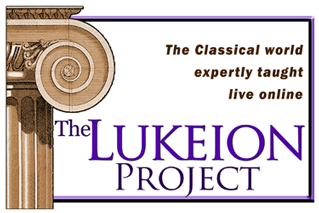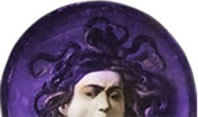History at The Lukeion Project
Why study Greek & Roman History?
In an age when many public programs are reducing education in history to a bare bones 'world history' requirement, some wonder how practical it can be to focus on Greece and Rome for two semesters during an already hectic high school schedule.
The answers are important. First, Classical history equips the modern western thinker to evaluate his or her own society, culture and politics more objectively from the vantage point of its foundations and development. Second, this generation is the first to be deprived of the important lessons that Classical Greece and Rome have to offer. Not only did these cultures contribute a wealth of thought and achievement, they also preceded us with a great many fatal mistakes that need not be repeated if only we pause to understand them analytically. Finally, the greatest literary and artistic works of previous generations assume an understanding these two cultures. A deep enjoyment of literature and art beyond sheer aesthetics is on the endangered list as fewer students are exposed to our ancient past.
The Lukeion Project takes an interdisciplinary approach
We've had plenty of learners admit (with an implied challenge) that they hate history. Our history instructors, Regan and Amy Barr, agree that it was not their favorite topic in high school either. It was taught by people who were as bored with the sawdust-dry state-mandated textbook as the next person.
The truth about the subject is this: properly understood, history encompasses all human action prior to this moment. Every song, game, battle, sculpture, romance, journey and hobby falls into the category of "human history." Since even the most resistant learner has hobbies and interests, one ought to wonder how any of us can resist loving history. Alas, it is usually reduced to a 'name, rank and serial number' flash card approach that is entirely focused on which year something took place rather than why any of us should care at all.
While our students will occasionally have to master an important few dates, we also want to share with them the full breadth of human experience by introducing ancient literature, art, craftsmanship, warfare, culture, tradition, religion and much more by bringing into our classroom art, architecture, archaeology, primary literature, keen modern scholarship, synthesis and analysis. This is the signature Lukeion Project interdisciplinary approach.
Classical History: The Greeks
A high school level Greek history semester course
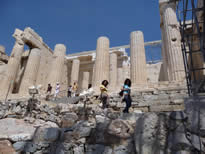 This course examines the history of the ancient Greeks, one of the most influential cultures to leave its mark on the western world. Chronologically we begin with the Minoans of the Bronze Age and end with the Hellenistic rulers just prior to the Roman domination of the eastern Mediterranean. We’ll consider the development of political and governmental systems, critical military events, dominant historical personalities, and significant artistic and literary advances (sculpture, architecture, painting, drama, prose, etc.). After completing this course, students will have a greater knowledge of the flow of Greek history and will be able to recognize many of the individuals, places, events and cultural contributions that are foundational to Western civilization. This course provides a superior preparation for college level studies since its format is like that of a freshman level college course. Students are encouraged to contact their instructor at anytime with questions: regan@lukeion.org
This course examines the history of the ancient Greeks, one of the most influential cultures to leave its mark on the western world. Chronologically we begin with the Minoans of the Bronze Age and end with the Hellenistic rulers just prior to the Roman domination of the eastern Mediterranean. We’ll consider the development of political and governmental systems, critical military events, dominant historical personalities, and significant artistic and literary advances (sculpture, architecture, painting, drama, prose, etc.). After completing this course, students will have a greater knowledge of the flow of Greek history and will be able to recognize many of the individuals, places, events and cultural contributions that are foundational to Western civilization. This course provides a superior preparation for college level studies since its format is like that of a freshman level college course. Students are encouraged to contact their instructor at anytime with questions: regan@lukeion.org
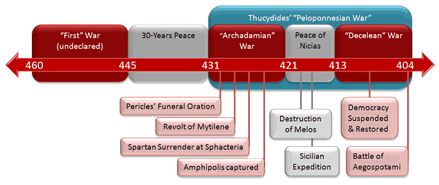 This is a highly visual course which will also serve to introduce students to the art, architecture and archaeology of the ancient Greeks. No textbook required for this course, the instructor will provide all materials and links to abundant internet resources.
This is a highly visual course which will also serve to introduce students to the art, architecture and archaeology of the ancient Greeks. No textbook required for this course, the instructor will provide all materials and links to abundant internet resources.
Students should anticipate 4-5 exams and a single 6-8 page research paper.
Pre-requisite: students should be reading and writing at the high school level. Audit available (audit means students do not take exams nore are there any graded requirements).
Autumn semester only, Wednesdays at 1 PM ET--instructor R. Barr
Register for 2016-2017 classes
Classical History: The Romans
A high school level Roman history semester course
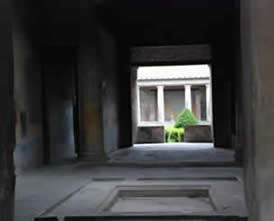 The importance of knowing something about the Romans can’t be understated. Simply put, Roman civilization is the basis of our modern world. Our law, language, political science, reason & logic, engineering, government, society and ideas about of civic duty come from the very clever Romans. No other ancient culture, other than the ancient Greeks, will help you understand the modern world better. All that “important stuff” aside, the Romans were real people, with real faults and value. The approach we use to study them will help you understand the big picture and the earthy basics of living in the Roman world.
The importance of knowing something about the Romans can’t be understated. Simply put, Roman civilization is the basis of our modern world. Our law, language, political science, reason & logic, engineering, government, society and ideas about of civic duty come from the very clever Romans. No other ancient culture, other than the ancient Greeks, will help you understand the modern world better. All that “important stuff” aside, the Romans were real people, with real faults and value. The approach we use to study them will help you understand the big picture and the earthy basics of living in the Roman world.
We start with Rome’s mythic past in Troy and Latium that proved formative to her historic behavior. We will cover the major historical figures, state innovations and law through primary and secondary sources. We will also include topics in the archaeology, geography and politics of the early Romans through the time of Constantine. Students will gain an appreciation of the contributions of the ancient Romans to the modern world, especially in the social and political arenas. Students are encouraged to contact their instructor at anytime with questions: amy@lukeion.org
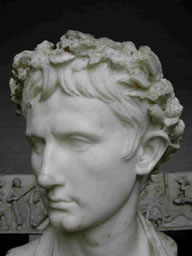 This is a highly visual course which will also serve to introduce students to Roman art, architecture and archaeology. No textbook required for this course, the instructor will provide all materials and links to abundant internet resources.
This is a highly visual course which will also serve to introduce students to Roman art, architecture and archaeology. No textbook required for this course, the instructor will provide all materials and links to abundant internet resources.
Students should be able to comfortably read around 30 pages per week and should anticipate 4-5 exams and a single 6-8 page research paper.
Pre-requisite: students should be reading and writing at the high school level. Audit available (no graded requirements)
